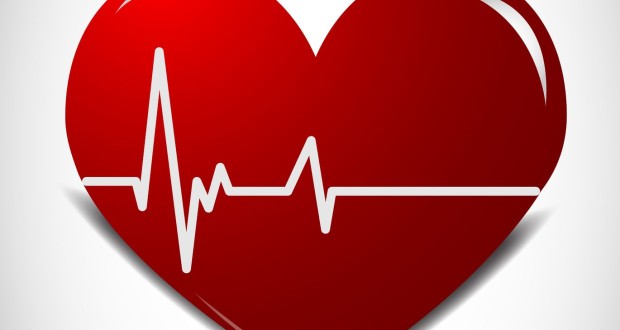It’s common knowledge that heart disease is one of the most rampant killers in the United States. Even if you have been fortunate enough not to suffer from heart disease, chances are that you know someone who has. This dreaded condition puts the afflicted patient at a much greater risk of several deadly heart complications, not the least of which are heart attacks. It is estimated that roughly 715,000 adults suffer a heart attack year, leading to about 125,000 deaths.
What makes heart attacks all the more alarming is their seeming propensity to strike without warning. Upon recovering, many surviving patients swear they noticed nothing wrong in the weeks leading up to their heart attack. While such statements are certainly understandable, they are often not entirely accurate; our bodies frequently give us faint hints of impending danger, including signs pointing to heart attack. The problem is that many of these red flags are too subtle to fully grasp, and thus are dismissed as relatively minor inconveniences. Other symptoms may in fact be fairly severe, but would seem to have to have little to do with your heart.
The good news is that while these heart attack warnings are not especially obvious, they can be spotted if the patient is properly familiar with them. For those concerned about their heart health, the proceeding list of warning signs could help spot a coming heart attack before it’s too late.
Excessive Sweating – Medical researchers have recently unearthed a link between unusual amounts of sweating and subsequent heart attacks. A report issued by University of Chicago faculty found that heart attacks are often well preceded by profuse sweating. In fact, excessive perspiration on the chest, palms, scalp, back and soles is often earliest discernable warning sign of heart attack.
Frequent Nausea, Indigestion and Stomach Ache – Usually, issues inside the intestinal tract can be attributed to various viruses or spoiled food. In a number of cases, however, these symptoms are indicative of deteriorating conditions within the heart’s major blood vessels, commonly referred to as the arteries. Poor dietary habits can cause plaque to buildup within the arteries, choking off the heart from its essential supply of blood. Not surprisingly, the consequences of such blockages are usually felt in the chest, with patients often complaining of pain and cramps.
In some patients, clogged arteries can cause the body’s nervous system to send pain down toward the abdomen, causing the stomach and intestines to ache. Additionally, constricted heart arteries tend to prevent the heart from supplying the blood with fresh oxygen. Without sufficient oxygen, the body can begin to suffer frequent bouts of nausea, indigestion and even vomiting.
Severe Fatigue – If you have ever had the flu (which would probably include everyone reading this article), you probably remember how just how tired the flu virus made you feel. The same type of debilitating fatigue can appear well in advance of a heart attack. This symptom is especially pronounced in women; according to study conducted by the National Institute of Health, a stunning 70 percent of women reported feelings of extreme fatigue in the weeks or months preceding their heart attack.
Anxiety and Insomnia – You would be correct in thinking that anxiety is a common problem. A quick Google search for “anxiety” yields a staggering 91.6 million hits. Likewise, many people struggle with getting a good night’s sleep; the National Sleep Foundation reports that more than 1 in 5 Americans experience insomnia every single night. What might surprise you is that recurrent problems with anxiety may signal a future heart attack. Poorly oxygenated blood, often caused by artery blockages near the heart, can lead to both insomnia and anxiety shortly before a heart attack. This red flag should be especially ominous to those who have experienced few problems with anxiety or sleep in the past.
Unexplained Pain In the Head and Arms – Chest pains are the telltale sign that something is seriously wrong with the heart. What is not commonly understood, however, is that the nervous system often induces pain in other areas of the body when confronted with damaged arteries. As noted earlier, one such area is the abdomen. The nervous system can also fire off pain signals towards the neck and jaw, and sometimes to even as far away the ear. A patient may also begin to experience pain the shoulders, arms and hands. The intensity of this pain can vary wildly; it may be sharp and agonizing, or it could be more akin to something resembling a pulled muscle.
Male Sexual Dysfunction – This one may hit below the belt, but it’s true nonetheless – constricted arteries often inhibit a man’s performance in the bedroom. This is because heart disease restricts the amount of blood that can be pumped toward the penis.
Male Pattern Baldness – In addition to a tepid love life, diseased arteries can also cause men to lose their hair. Once again, the unexpected connection between these two vastly different problems can be explained by poor blood circulation. Fatty deposits in the arteries effectively handcuff the heart muscle, preventing adequate amounts of blood from reaching the scalp.
Clammy Skin – In addition to wreaking havoc inside your body, the effects of heart disease can show up on your skin. Narrowed arteries can lead to clammy skin, a condition in which the skin becomes abnormally pale, cool and moist. Clammy skin is not to be taken lightly, as it may indicate that a heart attack is imminent.
 Natural Knowledge 24/7 Educate yourself with nutrition, health and fitness knowledge.
Natural Knowledge 24/7 Educate yourself with nutrition, health and fitness knowledge.






